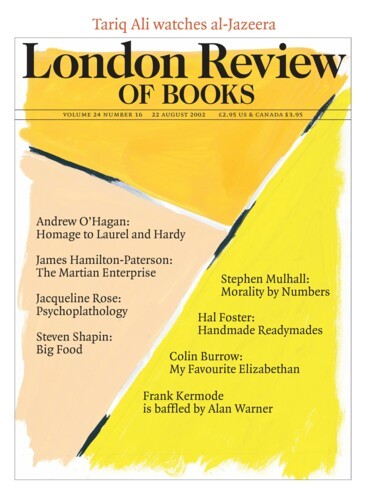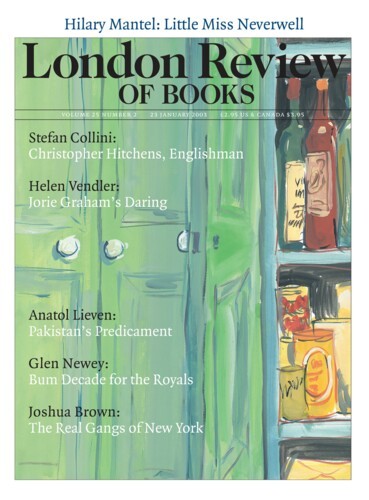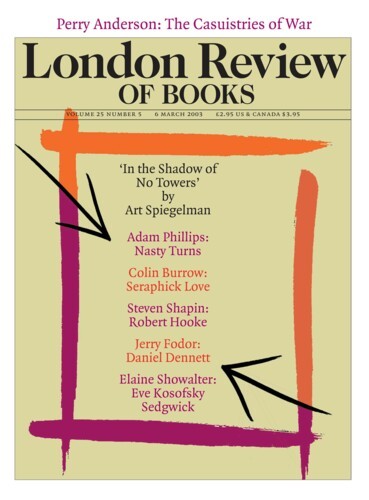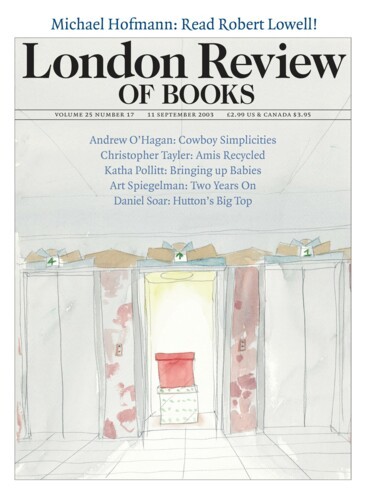Barbecue of the Vanities: Big Food
Steven Shapin, 22 August 2002
I am thinking of making Tuscan bean soup for dinner tonight. (My wife is from Birmingham and prefers her beans with sausage, egg and chips, but I have my limits.) If this were an ordinary day, I’d just get on with making the soup. I’ve got the things I need: the beans, pancetta, garlic, olive oil, parsley and chicken stock. I’ve made it dozens of times, and, after I’ve...





